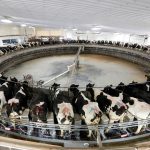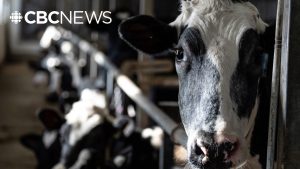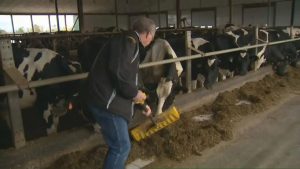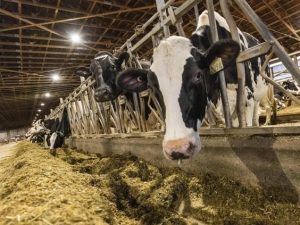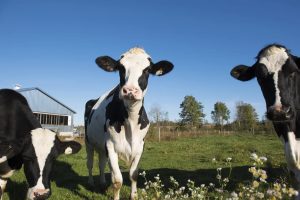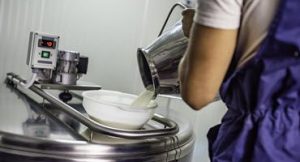
In an effort to help tackle climate change, the popular coffee chain is moving away from dairy, potentially leading to increased sustainability, pricier coffees and greater access to milk alternatives.
“It is going to be good for consumers because they’re going to have choice and be provided with alternatives, and that’s kind of the new normal,” Sylvain Charlebois, professor of food distribution at Dalhousie University, told CTV’s Your Morning on Monday.
On Jan. 21, the Seattle-based company released its “sustainability commitment” on its website explaining its goal to reduce its carbon footprint by 2030. The commitment includes moving away from single-use packaging, investing in regenerative agriculture and reforestation, and better food waste management.
But one of the more notable goals is that Starbucks will expand plant-based options and pivot away from regular milk, though it won’t stop serving it. Starbucks CEO Kevin Johnson said the company would push consumers to choose milk from almond, coconuts, soy and oats — which are far better for the planet than dairy.
But changes are still some ways away. Oat milk, for example, hasn’t been made available at any of its roughly 1,600 Canadian stores.
Currently, customers are charged more for milk alternatives such as soy or almond milk. So when it came to how the pricing could change, Charlebois pointed out Starbucks has some advantages compared to smaller chains or smaller shops.
When prices jump up – even slightly — for smaller chains, customers see them as more drastic changes. But Charlebois said price spikes for Starbucks customers might not feel as severe because their prices are already higher than smaller shops, “so they have more room to play around with prices.”
For a massive coffee chain – Starbucks boasts approximately 31,000 stores in 80 countries – to move away from milk, the potential effects to the planet and the dairy industry would be drastically noticeable.
An assessment on Starbucks’s operations found it emitted 16 million tonnes of greenhouse gases, used up one billion cubic metres of water and emitted 868 kilotonnes of waste across its full value chain in 2018, The Canadian Press reported.
According to a 2018 University of Oxford study, a glass of milk resulted in three times more greenhouse gas emissions and nine times more land consumption than any plant-based milk.
And while each milk alternative has its pros and cons, a shift to these could eat into dairy companies’ bottom lines. Dairy is responsible for 21 per cent of Starbucks’s global carbon footprint, so Charlebois didn’t mince words for the dairy industry: “it’s not going to be good.”
Other large restaurant chains are also focusing on sustainability. McDonald’s hopes to cut its restaurant and office emissions by 36 per cent from 2015 levels through to 2030. Meanwhile Yum! Brands Inc. – which owns KFC and Taco Bell – is hoping to slash emissions by 10 per cent for each of its stores by 2025.
But whether Starbucks’s specific changes could be achieved, Charlebois said that success would depend on Starbucks being up to the task.
He pointed out that in 2008, the company pledged to have 25 per cent of all coffee sold be in reusable cups. But several years later, it had to admit it had failed miserably, with only 2 per cent of coffee being served in reusable cups.
But in 2020, “people will actually make Starbucks accountable to the goals they actually set … so I expect they’ll be under a lot of pressure to deliver,” Charlebois said.
By its own account, in 2020, Starbucks says it’s responsible for about one per cent of the estimated 600 billion disposable cups used globally every year.


